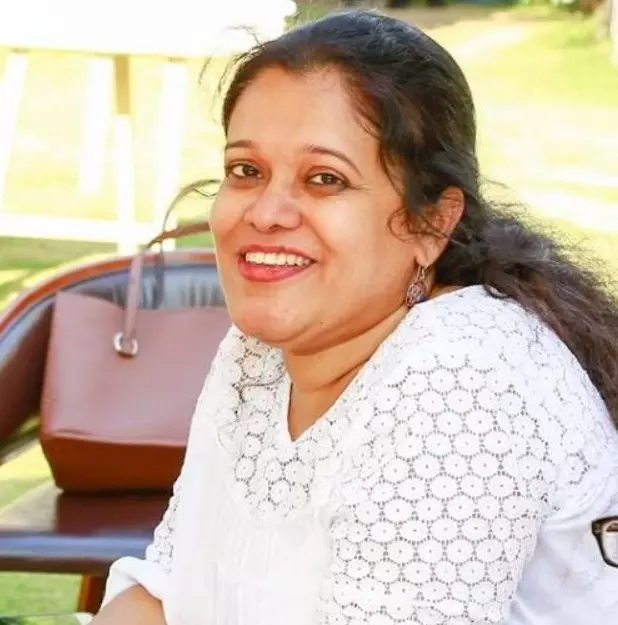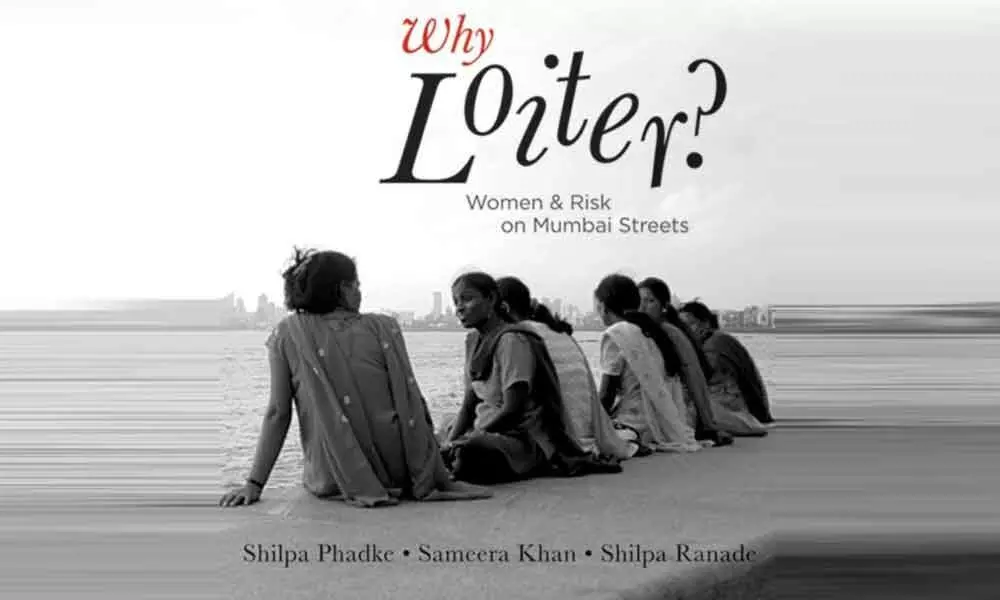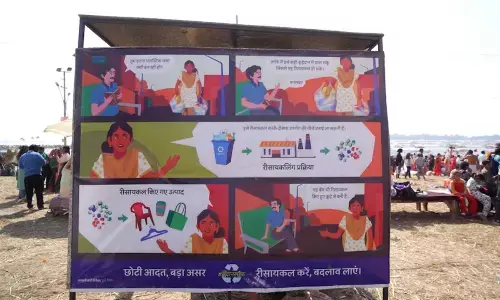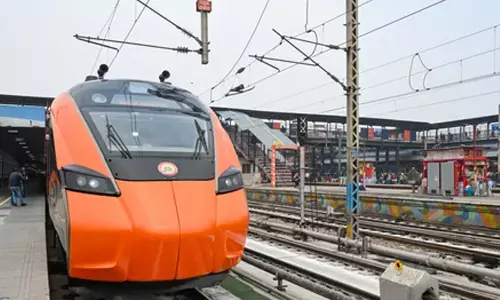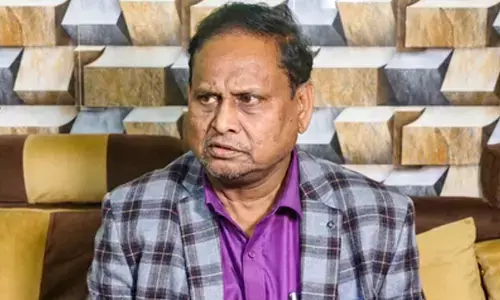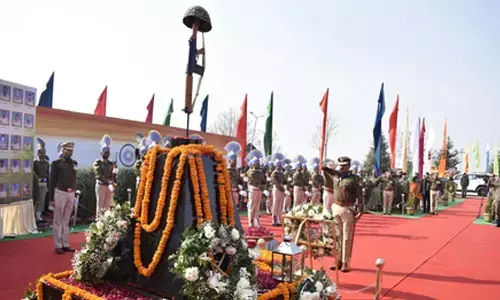Why Loiter? the book talks about Women access and their need to reclaim public spaces
In the recent gory case of Disha we all realised that the girl felt safer to stand at a distance, in isolation, and put herself unknowingly in danger rather than wait at a toll plaza where there would be people, activity and lesser chance of someone assaulting her. Why did she feel unsafe at the crowded place?
The recent act of crime against a woman in the outskirts of Hyderabad has brought in, yet again, a series of speculations, suggestions, and advises on the dos and don'ts, self-protection mechanism, self-defence tips. But there is one very important issue that has come to light amongst the other lapses in the system that lent itself to creating a condition suitable for the violators. The fact (that has come out through a telephonic conversation) that the girl felt safer to stand at a distance, in isolation, and put herself unknowingly in danger rather than wait at a toll plaza where there would be people, activity and lesser chance of someone assaulting her. Why did she feel unsafe at the crowded place? She had said, 'people would look at her', indicating she would be uncomfortable. She like millions of women in India was evidently more worried about the judgmental gaze of passersby had she stood at the gate, especially about what we call the 'male gaze'. She was more worried about what they would think. Unfortunately, the wrong decision at the time. But, can we blame her?
Social activist and project director at 'Bhumika Women Collective' Satyavati Kondaveeti cannot agree more. "
And, coming back to the young lady, who was raped and murdered brutally; she had a purpose. She was coming back from a beauty parlour, which again was ridiculed. So, according to this section of society trying to pin the blame on the victim, a woman cannot be out even at that Godly (9 pm is when most working people are still on the roads of the city navigating the traffic) hour, and a parlour visit is hardly a valid agenda, according to them.
Yes, we must make our cities safe for women and everyone else. "We must also make an effort to change the dated thought process. And the responsibility for this is not just on the woman, but on all of us," adds Satyavati.
One very important step in this direction is to make all places accessible to women; which may be the case on paper, but in the 'accepted way of behaviour' manual, there are many places that are a strict 'No' for women. And the women, in general, learn this as a part of growing up; it is an unconscious process, and even they do not realise this. And this is evidently the reason why the aforesaid girl, who lost her life in the most gruesome manner, just a few steps away from where there were enough hustle and bustle, did not choose the safer place. She just went by one reason - 'What would people think, had she stood there looking purpose-less to all those who pass by the toll gate.'
'I wish to…just be myself…not think about who's watching me…if I want to just sing to my heart's content…swing about and walk the streets…laugh…express me…without anybody misconstruing anything I do or say' – These words are taken from 'The Blank Noise Project' – a community project that grew out of Bengaluru, to tackle street harassment and change public attitudes towards sexual violence through creative initiatives that started around 2003.
Aparna Das, the woman behind the concept, shares on her website - I know I am not alone. Every woman in India has faced sexual harassment and gender bias one time or another. To fight that is a common survival story. From knowing how to dress 'respectably', carry a pepper spray/knife while walking on lonely streets or being 'smart enough' to come back home before sunset – we all have experiences to share. Project Black Noise is a forum for women to voice those survival stories and share their perspective. It is an attempt to end a culture of silence in India.
As Aparna mentioned it is important to know what women think. Whenever there is an incident of violence that has gained traction of the media, for what-so-ever reason (even as we speak there was rapes, assaults happening across India, a few reported and many that go unreported), there is an onslaught of suggestions and the government announces several measures to tackle the issue. Sameera Khan, a journalist and co-author of 'Why Loiter?' says, "Women must be spoken to and asked what they expect to change. Their problems and experiences must be discussed and based on their suggestions; changes should be made to make our cities safer. We need more illumination on roads, we need sensitised police and better response to complaints. Above all the attitude towards women must change. It must be accepted that she too belongs. Women too are citizens and all kinds of women can use public spaces, be it for work or pleasure."
She adds, "Women do know they are safe in crowds, but only if it is a mixed crowd. Many women feel uncomfortable when the crowd has a majority of male members. Women and even men must have access to healthy clean public transport, telephone booths on the highway that I can pick up and call when in need, garages that are a call away; the facilities can even be available at toll gates. Hyderabad has this long freeway, sometimes I wonder what would happen if my car breaks down and my phone doesn't work? We need to have the option to access a police station or a way to reach out to the people who matter."
In 2016, Shilpa Phadke, Shilpa Ranade and Sameera Khan researched on women and their access and their need to reclaim public spaces. They published their findings as a part of a book, 'Why Loiter?'. The book in simple terms questions the accepted norm that women cannot loiter for pleasure or hang out in public spaces without a purpose or company.
Their research shows that though political and economic visibility has brought increased access to public space. It has not automatically translated into greater rights to public space for women. ''We suggest that concerns regarding safety for women are articulated in a language of exclusion and premised on the elimination of other marginal citizens…," they say.
It is interesting to note how women behave when they are in public spaces, which reaffirms this feeling of insecurity within them that has been fostered from since they were small kids; they always show a sense of purpose.
'Women's demeanour in public is almost always full of a sense of purpose; one rarely sees them sitting in a park, standing at a street corner smoking or simply watching the world go by as men might. Our research demonstrates that women's access to public space involves a series of strategies involving appropriate clothing, symbolic markers, bulky accessories, and contained body language designed to demonstrate that despite their apparent transgression into public space, they remain, respectable women, essentially located in the private. (extracted from 'Why Loiter?').
While there are many suggestions one gives to girls on how they must protect themselves, which they are already doing and more; it is essential to address the issue from a male perspective in terms of changing the attitude, and the society in general. "It's time-shifted focus," states Satyavati Kondaveeti, and rightly so.
When Indian women fought for their rights
In addition to 'Blank Noise' and 'Why Loiter', time and again Indian women fought for their right to public spaces; a fight for freedom and equal rights as citizens of India. These movements were derided, and led to a lot of backlash. However, they did create a lot of awareness, a way forward in the long journey before India changes for better.
A Woman Was Harassed Here (AWWHH)
It is artist, activist Aqui Thami's street art project. She went about Mumbai wheat-pasting bright pink posters that read "A Woman Was Harassed Here". These posters were put up in areas where Aqui Thami or her friends had experienced some form of harassment. The posters were reflective of how pervasive harassment can be and an attempt to encourage discourse on harassment.
Pinjra Tod
It is a Delhi-wide collective born out of the need for non-discriminatory rules and practices in female students' hostels and PGs. The collective's work primarily focuses on breaking the 'security narrative' by demanding that 'safety' not be used as reasons to restrict women's freedom. In 2015, the collective's 'Bus Teri Meri, Chal Saheli' (The bus is yours and mine, come along sister) campaign encouraged women to use buses at night as a way of normalising the idea that women use public transport during late hours too.
#IWillGoOut
In the aftermath of a mass molestation incident in Bengaluru which was followed by many insensitive and sexist comments from politicians, hundreds of people took to the streets in about thirty cities, big and small across India. The movement advocated for women's right to go out whenever they want without having to face harassment.
The Pink Chaddi
A massive movement garnered in protest when in 2009, a group of young men and women were attacked by the members of the Sri Ram Sena at Amnesia: the Lounge in Mangalore for 'sabotaging' Indian culture by drinking and partying together. Nisha Susan, a Delhi-based journalist launched a Facebook group called 'Consortium of Pub-Going, Loose and Forward Women'. The 'Pink Chaddi Campaign' was undertaken by the group members as a non-violent means of protesting against the Right-wing extremist group.
Source: Feminism India

